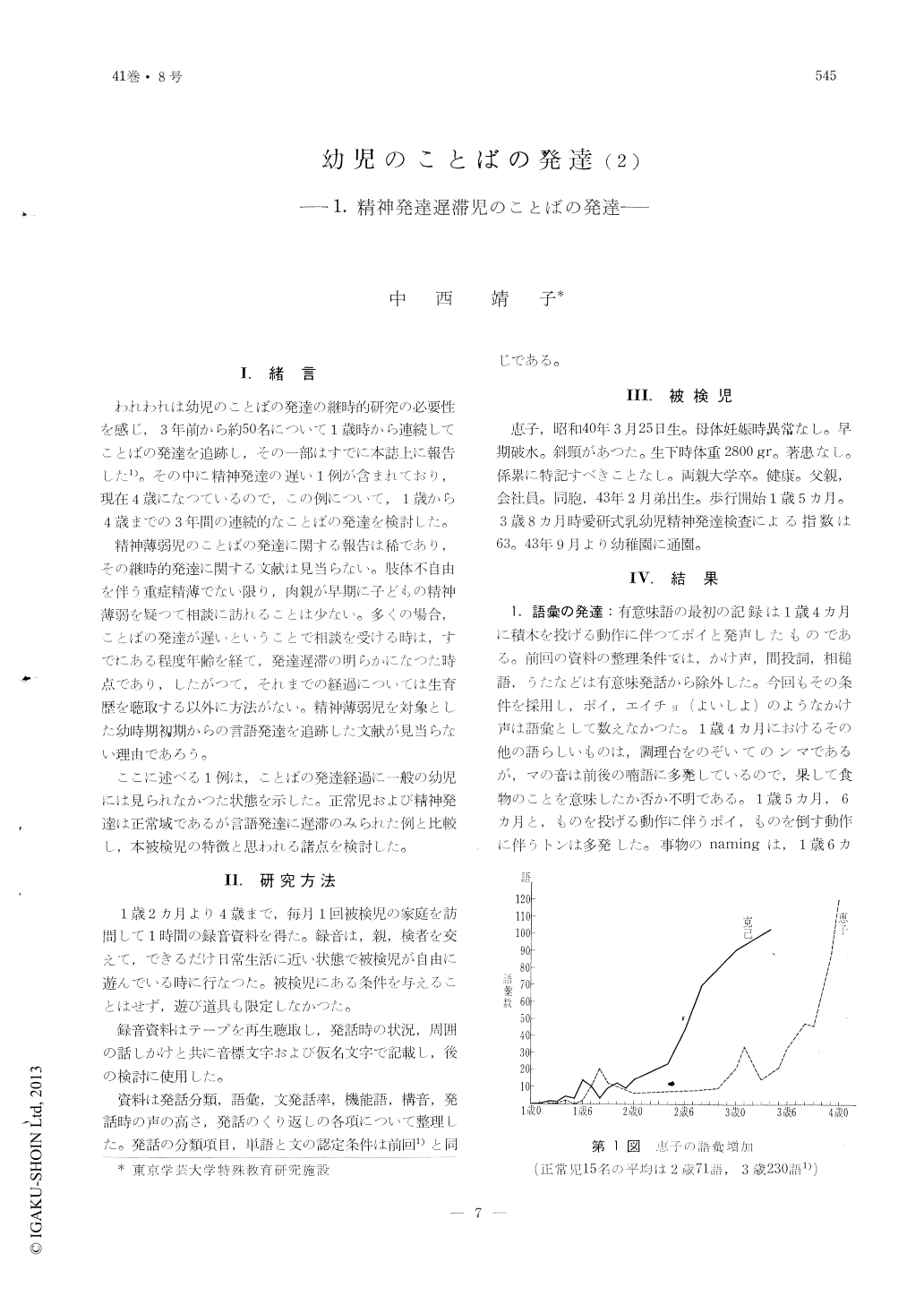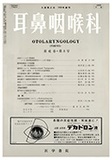Japanese
English
- 有料閲覧
- Abstract 文献概要
- 1ページ目 Look Inside
I.緒言
われわれは幼児のことばの発達の継時的研究の必要性を感じ,3年前から約50名について1歳時から連続してことばの発達を追跡し,その一部はすでに本誌上に報告した1)。その中に精神発達の遅い1例が含まれており,現在4歳になつているので,この例について,1歳から4歳までの3年間の連続的なことばの発達を検討した。
精神薄弱児のことばの発達に関する報告は稀であり,その継時的発達に関する文献は見当らない。肢体不自由を伴う重症精薄でない限り,肉親が早期に子どもの精神薄弱を疑つて相談に訪わることは少ない。多くの場合,ことばの発達が遅いということで相談を受ける時は,すでにある程度年齢を経て,発達遅滞の明らかになつた時点であり,したがつて,それまでの経過については生育歴を聴取する以外に方法がない。精神薄弱児を対象とした幼時期初期からの言語発達を追跡した文献が見当らない理由であろう。
The speech development of a mentally retarded girl was studied longitudinally from one year to four years of age. One-hour tape-recorded data were obtained once a month at her own home environment.
Though the developmental patterns of vocabulary, sentence utterances, and the parts of speech were similar to those of normal children, her level of communication was much inferior to that of normal children with equal MA. Some features in her use of words were discussed: 1) lack-of generalized use of a word to numerous objects, 2) scarcity of responses in communication, 3) spontaneous low-level descriptive utterances, 4) characteristics in the content of her vocabulary, 5) disturbances in pitch control of utterances, and 6) excessive repetition of words and phrases.

Copyright © 1969, Igaku-Shoin Ltd. All rights reserved.


